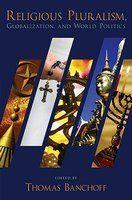
Book Summary
Religious pluralism is everywhere in today's politics. Increased immigration flows, the collapse of communism, and the globalization of communications technologies have all fostered a wider variety of religious beliefs, practices, and organizations within and across democratic societies. This is true in both the United States and Europe, where growing and diverse minority communities are transforming the political landscape. As a result, controversies over such things as headscarves and depictions of Mohammed are unsettling a largely secular Europe, while a Christian majority in the US faces familiar questions about church-state relations amidst unprecedented religious diversity. Far from receding into the background, religious language pervades arguments around established issues such as abortion and capital punishment, and new ones such as stem cell research and same-sex marriage. In Democracy and the New Religious Pluralism, leading scholars from multiple disciplines explore these dynamics and their implications for democratic theory and practice. What are the contours of this new religious pluralism? What are its implications for the theory and practice of democracy? Does increasing religious pluralism erode the cultural and social foundations of democracy? To what extent do different religious communities embrace similar -- or at least compatible -- ethical and political commitments? By seeking answers to these questions and revealing religious pluralism as both a source of animosity and a potent force for peaceful engagement, this book offers a revealing look at the future of religion in democratic societies. Globalization has spawned more active transnational religious communities, creating a powerful force in world affairs. Religious Pluralism, Globalization and World Politics, an incisive new collection of essays, explores the patterns of cooperation and conflict that mark this new religious pluralism. Shifting religious identities have encouraged interreligious dialogue and greater political engagement around global challenges including international development, conflict resolution, transitional justice, and bioethics. At the same time, interreligious competition has contributed to political conflict and running controversy over the meaning and scope of religious freedom. In this volume, leading scholars from a variety of disciplines examine how the forces of religious pluralism and globalization are playing out on the world stage.
Book Details
| Book Name | Religious Pluralism, Globalization, And World Politics |
| Author | Thomas F. Banchoff |
| Publisher | Oxford University Press, Usa (Nov 2008) |
| ISBN | 9780195323405 |
| Pages | 360 |
| Language | English |
| Price | 5399 |
